Small gestures with big meanings: Historic presidential handshakes
Will they or won't they? Pundits weighed in on whether or not President Obama and his Iranian counterpart, Hassan Rouhani, would shake hands at a United Nations luncheon on Tuesday. While Rouhani did not attend the luncheon, the gesture would have been historic for two countries whose leaders have not met in three decades. Take a look here at past presidential handshakes weighted with symbolism.
Obama and Gadhafi, 2009
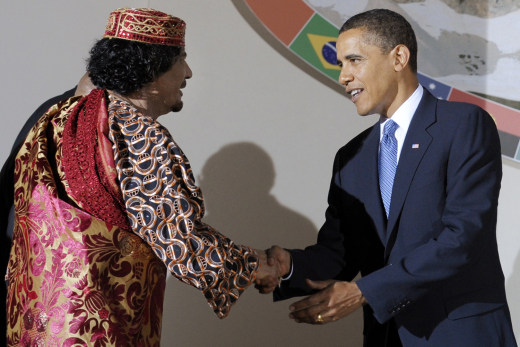 MICHAEL GOTTSCHALK / AFP - GETTY IMAGES
MICHAEL GOTTSCHALK / AFP - GETTY IMAGES
Obama and Chavez, 2009
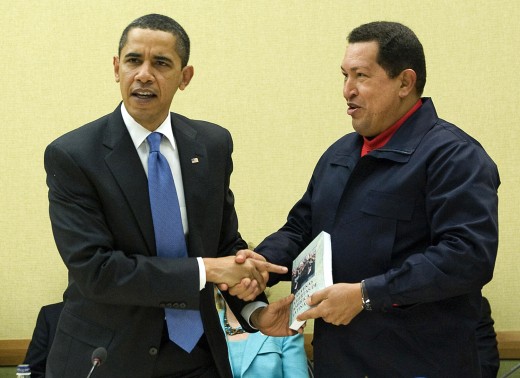 JIM WATSON / AFP - GETTY IMAGES
JIM WATSON / AFP - GETTY IMAGES
Reagan and Gorbachev, 1985
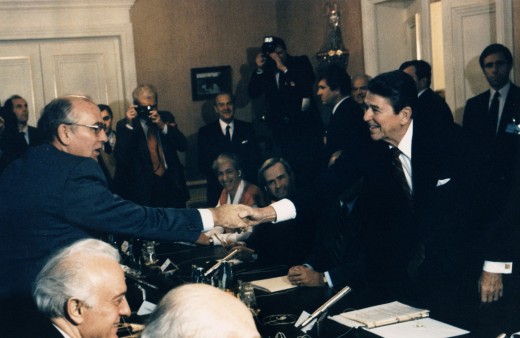 AP
AP
Carter, Sadat and Begin, 1979
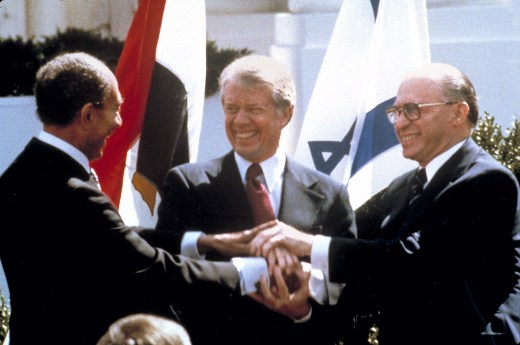 BOB DAUGHERTY / AP
BOB DAUGHERTY / AP
Carter and the shah of Iran, 1977
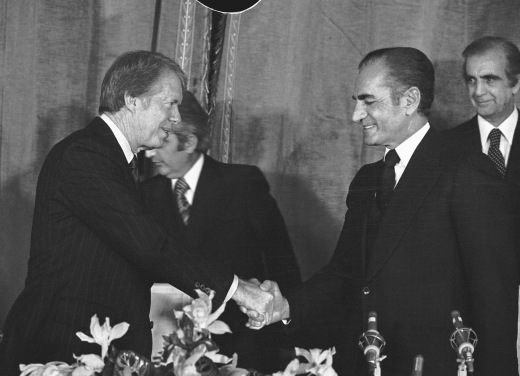 BETTMANN/CORBIS
BETTMANN/CORBIS
Kennedy and Khruschev, 1961
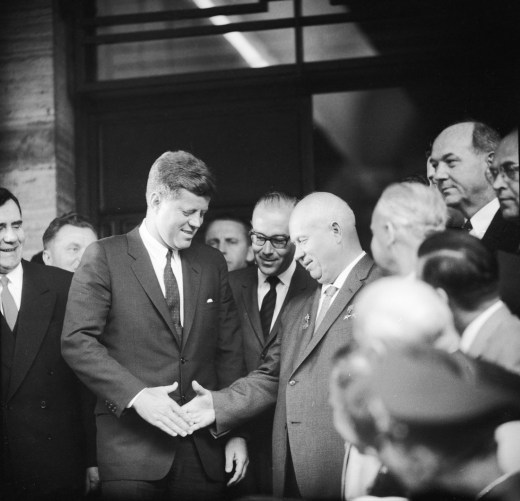 RON CASE / GETTY IMAGES
RON CASE / GETTY IMAGES
Nixon and Mao, 1972
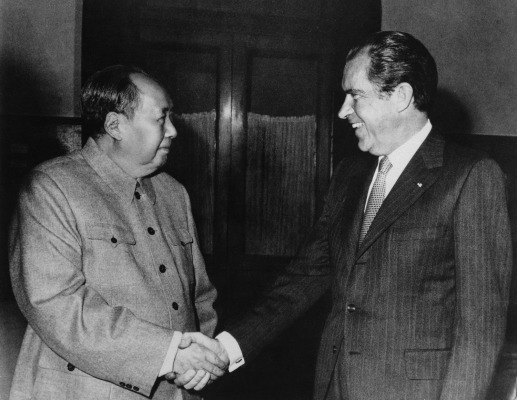 AP
AP
Vice President Nixon and Castro, 1959
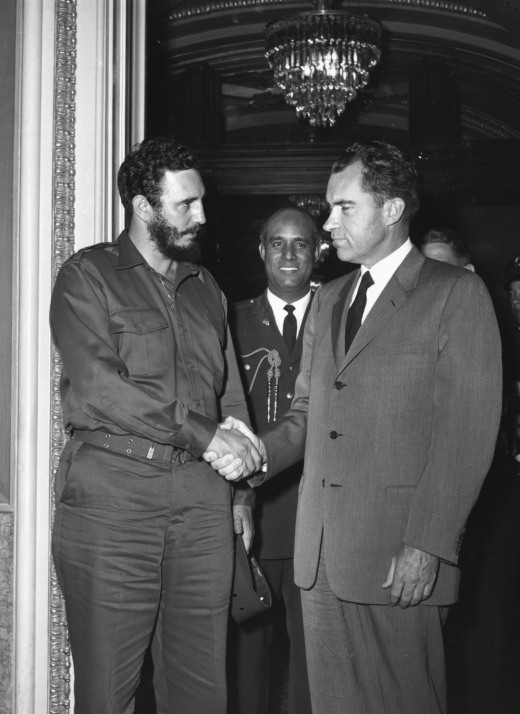 KEYSTONE / GETTY IMAGES
KEYSTONE / GETTY IMAGES
Truman, Churchill and Stalin, 1945
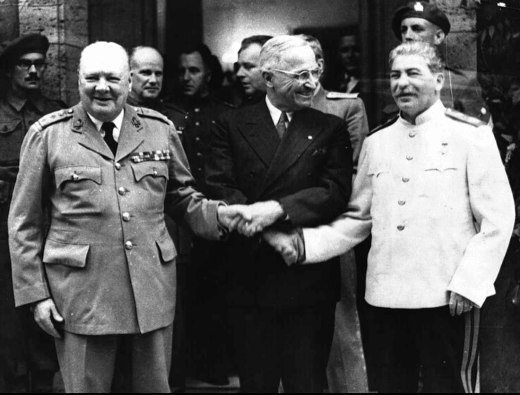 AP
APD.C. stuck in symbolic gestures
“A simple recipe for violence: promise a lot, deliver a little. Lead people to believe they will be much better off, but let there be no dramatic improvement.” The brilliant political scientist Aaron Wildavsky wrote these words in 1968 while America was engulfed in race riots and anti-war protests. Sadly, his words from long ago eerily describe the politics of 21st-century America.
President Obama and his recent predecessors have been good about promising a lot but delivering little.
The current crusade to raise the minimum wage is a perfect example. Regardless of whether it makes sense, the impact doesn’t measure up to the problems it is supposed to solve.
Will it help reduce poverty? Perhaps a bit. The Congressional Budget Office estimates it will lift 900,000 people out of poverty over the course of a few years. But the government says nearly 50 million people are officially living in poverty. So, raising the minimum wage might help about 2 percent of the poor move from just below the poverty line to just above it. And the people it helps are not the ones who need it most. The poorest of the poor lack jobs of any kind.
Back in 1968, Wildavsky said such symbolic political gestures create “minus-sum games in which every player leaves the contest worse off than when he entered.” In the case of the minimum wage, Obama could fail to accomplish his goal and disappoint his base. However, when symbolic issues pass, it can be even worse because “it soon becomes clear that nothing has changed.”
Minus-sum games are the norm in American politics today. Issues are raised, and symbolic solutions are proposed. If the proposed solution doesn’t get passed, the losing team gets angry. If it does get passed, nothing changes.
The problem of promising a lot and delivering little is especially true of the president’s health care law. Symbolically, it was supposed to insure the uninsured, reduce costs for everyone else and improve service. There were no downsides in the symbolic version of the plan. If you liked your insurance or your doctor, you were told you could keep it.
Now that the law has passed, the reality doesn’t measure up. Even those who have experienced little disruption are disappointed solely because the promises were much loftier. The president led people to believe they would be better off, and they’re not. Not surprisingly, national frustration with the law is growing daily.
Obama, of course, is not alone in this approach. Republicans do it, too. They continually rail against government spending, but fail to propose anything more than symbolic gestures to slow down the growth.
The core problem is that both political parties in Washington promise that the federal government can fix every problem. But the truth is it can’t. To solve the challenges before our nation, we need an all-hands approach that unleashes the creativity and resources of individual Americans, community groups, churches, small businesses, state and local governments, and more.
This will certainly mean a smaller role for the federal government, but it will put the problem-solving responsibility where it belongs — with the American people.
Scott Rasmussen is the founder and CEO of Rasmussen Reports. Talk back at letterstoeditor@bostonherald.com
President Obama Makes Symbolic Gesture and Signs Up for Health Insurance, But Not Through Healthcare.Gov
 (Photo: Reuters/Larry Downing)U.S. President Barack Obama pauses while talking about the Affordable Care Act in the Brady Press Briefing Room at the White House in Washington, November 14, 2013. Obama bowed to political pressure from his fellow Democrats on Thursday and announced a plan to let insurers renew for one year the health plans for Americans whose policies would be otherwise canceled due to Obamacare.
(Photo: Reuters/Larry Downing)U.S. President Barack Obama pauses while talking about the Affordable Care Act in the Brady Press Briefing Room at the White House in Washington, November 14, 2013. Obama bowed to political pressure from his fellow Democrats on Thursday and announced a plan to let insurers renew for one year the health plans for Americans whose policies would be otherwise canceled due to Obamacare.
BY MYLES COLLIER, CHRISTIAN POST CONTRIBUTOR
December 24, 2013|9:49 am
In a symbolic show of support for the Affordable Care Act President Barack Obama signed up for a health insurance plan, the White House said.
However, the president will still continue to receive health care from the military. Still, the White House revealed that President Obama successfully enrolled in an individual "bronze" plan through the Washington, D.C., exchange. The plan will cost the president nearly $400 a month.
Obama will pay the monthly premiums, but he will still continue to use his personal physician for himself and the First Family, a spokesman said.
"He was pleased to participate in a plan as a show of support for these marketplaces, which are providing quality, affordable health care options to more than a million people," the White House said.
Due to the nature of the presidency Obama did not sign up for health insurance through the troubled HealthCare.gov website.
"The complicated nature of the president's case required an in-person sign-up," a spokesman said. "As you'd expect, the president's personal information is not readily available in the variety of government databases HealthCare.gov uses to verify identities."
In lite of the troubled roll out of Healthcare.gov President Obama extended the deadline to sign up for insurance to ensure coverage starting News Years Day, but some states have extended the deadline even further which could cause additional consumer confusion.
"They stepped all over the first two months of the enrollment period. Now I think there's this big effort to give people as much flexibility as they can to sign up for coverage effective Jan 1," Karen Pollitz, senior fellow at the Kaiser Family Foundation, told Reuters. "The downside is there could be more confusion. The upside is that many more people could get in under the wire."
On Sunday, President Obama insisted that ObamaCare is moving forward and the website is improving on a daily basis and but urged those who wanted health insurance to enroll by Tuesday after the White House extended the Monday deadline by one day.

